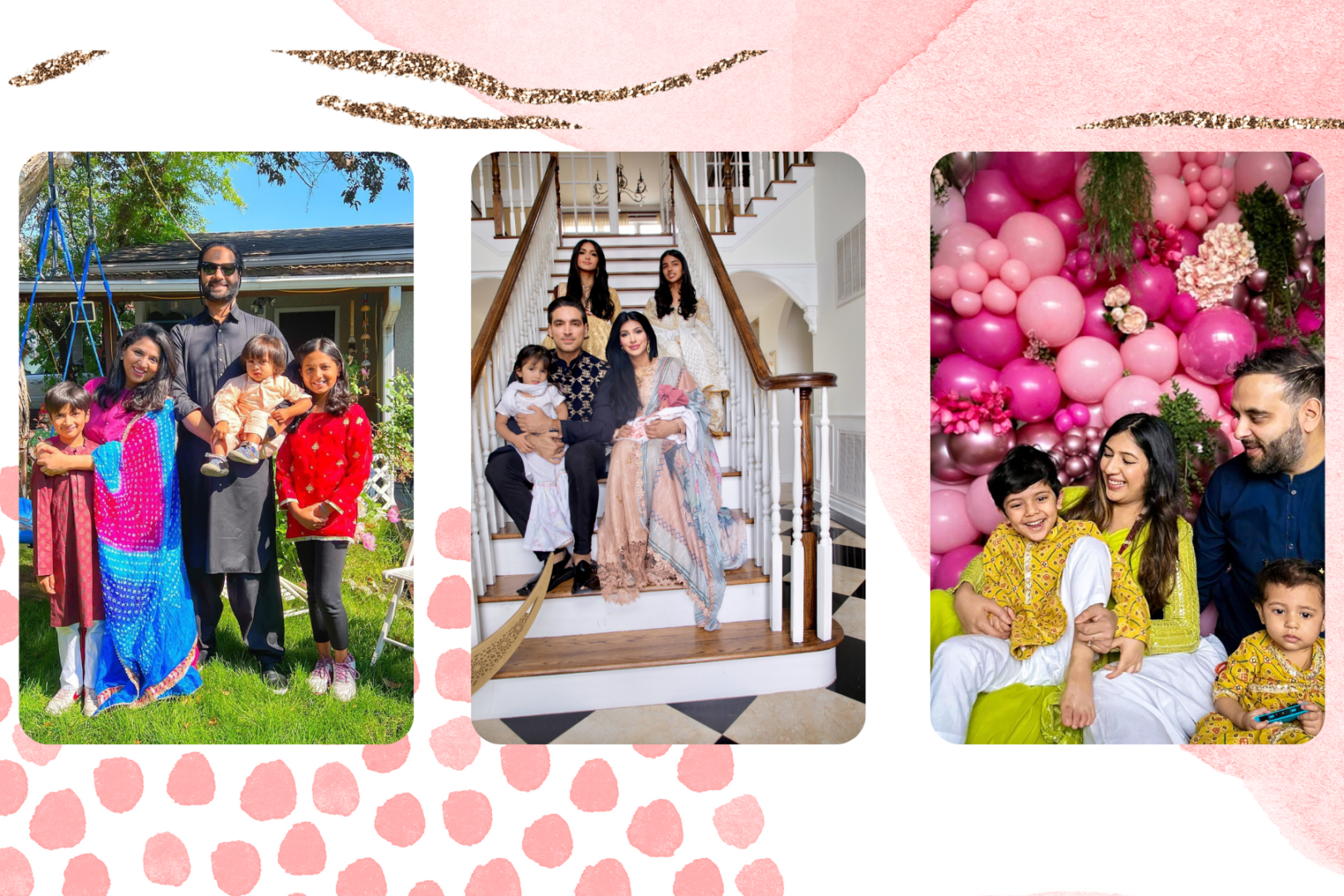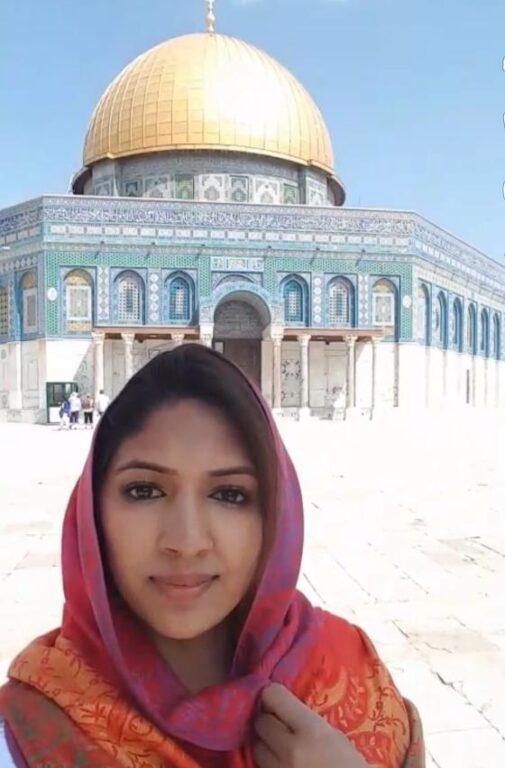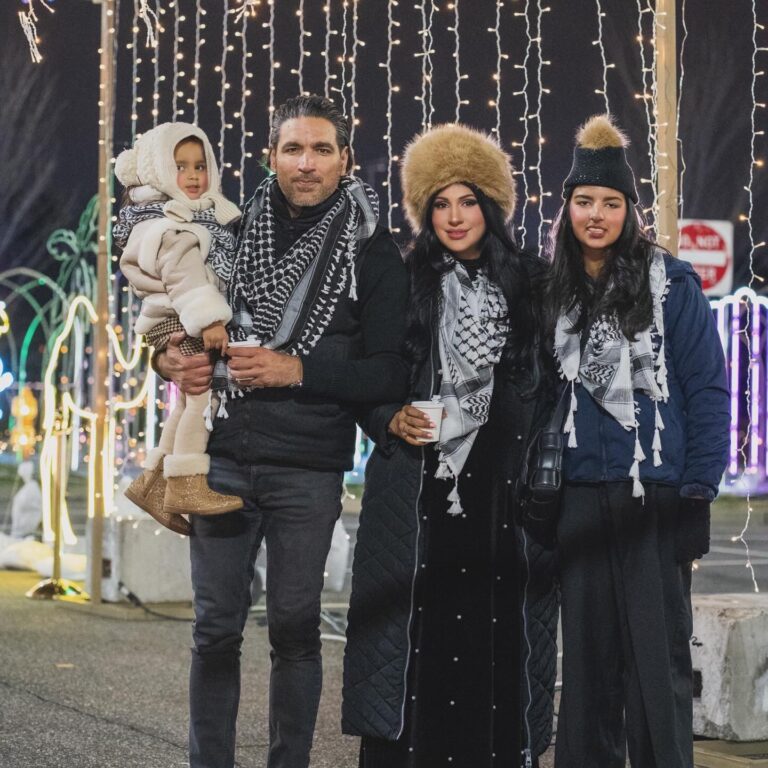
As I ran my fingers through a heavily-embroidered South Asian piece of fabric — its threadwork so rich as well as the color — I remember thinking how perfect it would be as my Eid ul-Adha attire. Then…something hit me. My mind immediately flashed back to my colleague, who showed me a picture of her at her relative’s wedding: she described the loose-fitting black outfit, vibrant with red threadwork, she had worn. “I stitched it myself,” she had said. “We all stitch it ourselves.”
By “we” she meant her community — the Palestinian people — and I wondered how many thousands of stories had been stitched into that one fabric; every line, every curve, every motif signified a moment in history or a pivotal memory. I found my colleague’s story about her outfit relatable, but listening to her speak of her occupied nation, her memories from having grown up there, her worries about her family and friends who had been pushed out of their own lands, I replied, “I am praying for you and them, sister.” And I did pray. And I am still praying.
[Read Related: Heartache in Gaza: A Mother’s Reflection Amidst Loss and Trauma ]
This Eid ul-Adha, as parents, we are celebrating everything we are grateful for and the sacrifices we have made and our immigrant parents had made, but keeping in mind the Palestinian people. Our children ask questions, including the big “Why?” We, the parents, should start that conversation and answer their questions as gently as stitching together an outfit. I interviewed a few inspiring mothers on how different Eid ul-Adha is for them this year and how significant is the Palestinian movement to their celebrations.
Tamania Jaffri Naqi
Considering it is Eid ul-Adha, a.k.a. the Feast of Sacrifice, and the word ‘sacrifice’ is significant. How are you explaining the concept of sacrifice to your child(ren)?
Sacrifice is a difficult concept to explain to children, but the story of Prophet Ibrahim really helps. I remember the first time I told the story to my children, I was worried about their reaction. But they loved the story and were really moved by the mercy of Allah and how He rewards those who sacrifice in His love.
How are you planning on making Eid ul-Adha special for your family? What do you and your child(ren) look most forward to?
We make this Eid special by talking about the concept of sacrifice and hajj. We also arrange and attend some get togethers and that’s something the kids look forward to the most: spending Eid with their friends!
View this post on Instagram
If you have spoken to or are planning on speaking to your child(ren) about Palestine, what tips do you have that may help other parents initiate or engage in such a conversation?
Yes, Palestine has been in our prayers and conversations for months. The weight of what has been happening in the world has been heavy on our hearts. We have been fundraising to support humanitarian efforts in Palestine. I feel engaging children in age-appropriate ways is extremely important to keep humanity alive and raise empathetic, kind children.
As a mother, how do you encourage mindfulness in your child(ren) while celebrating Eid ul-Adha?
As children, part of the magic of Eid is a day when you’re pampered unconditionally with no track of time or the everyday. However, we encourage our children to take on some logistical responsibilities and help with the planning of Eid events. This year, we are also mindful of what is happening with our brothers and sisters in Gaza; keeping our celebrations a bit low key and helping out as much as we can.
Tahmida Choudhury
Considering it is Eid ul-Adha, a.k.a. the Feast of Sacrifice, and the word ‘sacrifice’ is significant. How are you explaining the concept of sacrifice to your child(ren)?
Our oldest is four years old so he’s still a bit young to understand the entire concept. As of this year, we’ve been preparing him to understand why we celebrate Qurbani by telling him the story of Abraham and Ismail. We don’t want to overwhelm him so we explain it in small bits and pieces leading up to Eid ul-Adha.
How are you planning on making Eid ul-Adha special for your family? What do you and your child(ren) look most forward to?
My four-year-old son loves being around people so we don’t have to prepare him too much for the upcoming social gatherings. We did, however, explain the significance of Eid ul-Adha and our family traditions, which includes freshening up in the mornings, getting dressed in our new clothes and visiting lots of family, friends and relatives. Since the day we explained the traditions to him, the one thing he keeps asking is, “When are we going to visit everyone’s houses?”

If you have spoken to or are planning on speaking to your child(ren) about Palestine, what tips do you have that may help other parents initiate or engage in such a conversation?
I plan on explaining what is happening in Palestine, some day. I think it’s very important for our kids to learn about current affairs and get involved somehow in these kinds of discussions from a very early age. One major tip I have for parents is to know the history of Palestine because kids love asking lots of questions! We need to be confident in answering them and the way to do that is to understand and know what we’re talking about.
As a mother, how do you encourage mindfulness in your child(ren) while celebrating Eid ul-Adha?
Every Eid, I cook up a storm. There are so many different food options to celebrate Eid, but this year I have tried to be mindful about our menu options, planning to keep things a bit simple. Thinking about the devastation and forced starvation of the Palestinian people, I don’t want to waste food. I teach my children to be appreciative of what they have, to thank Allah and pray for the people in the world who are less fortunate than us.
Faiza Pervaiz
Considering it is Eid ul-Adha, a.k.a. the Feast of Sacrifice, and the word ‘sacrifice’ is significant. How are you explaining the concept of sacrifice to your child(ren)?
Sacrifice is prioritizing the greater good over personal desires. When we sacrifice something, we are relinquishing cherished aspects of our lives for the betterment of others or a noble cause. It’s an act of selflessness, where one chooses to forego personal comforts in service of a higher purpose.
How are you planning on making Eid special for your family? What do you and your child(ren) look most forward to?
Being a girl mom, I look forward to coordinating outfits with my daughters and to make Eid special, chooriyan (bangles) are a must.

If you have spoken to or are planning on speaking to your child(ren) about Palestine, what tips do you have that may help other parents initiate or engage in such a conversation?
I have spoken to my elder two daughters, who are 17 and 15 years old, regarding the current genocide in Palestine. Both girls boycotted brands that support the genocide. The conversation was straightforward and focused on speaking up for the oppressed. We discussed our obligation toward being on the right side of history, by resisting complicity and speaking the truth even when we’re forced to remain silent. We spoke about the guilt we feel for being privileged, but also how we must use our privilege to do good work toward humanity.
As a mother, how do you encourage mindfulness in your child(ren) while celebrating Eid?
As a mother, I encourage my children to think about those who are less fortunate, to keep them in our prayers and to contribute toward those who are helpless. I also encourage them to be humble and to practice gratitude on auspicious occasions. Most importantly, I ask them to reflect on Eid and how we can carry the good deeds, that we did throughout the year, and how we can work on improving ourselves for the next Eid.
As I interviewed these moms, the following words stood out to me: “humble,” “gratefulness,” “empathetic,” “pray,” “reflect,” “humanity” “humanitarian” and “sacrifice.” If one were to sew these words into a fabric, compassion would be the needle and peace would be the thread. Eid Mubarak!




